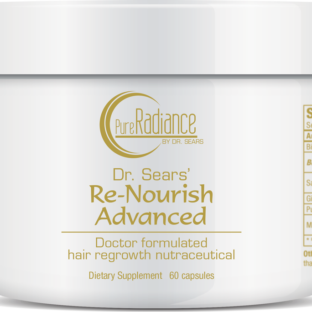Every hour of the day, your cells are under attack. Normally, this is OK because your cells have a built-in DNA repair system that fixes any damage. But when your cells are undernourished, they can lose the ability to repair themselves. And that’s bad news.
Part of the reason for the explosion of cancer in modern times is because we’re not repairing our DNA. Our bodies aren’t getting enough of the nutrients we need to make this process work.
But you can help protect yourself with a simple mineral. I’m talking about zinc.
Zinc helps prevent – and reverse – this damage to your DNA. Studies show that zinc and zinc-containing proteins are some of the most important factors in repairing DNA breaks.1,2
And a study by the Linus Pauling Institute at Oregon State University shows that supplementing with zinc reverses cell damage.3
Add this latest finding to zinc’s list of health benefits:
- Heart-health booster
- Essential to your prostate and sexual performance
- Can prevent pneumonia and speed the recovery from colds
- Promotes wound healing
I see patients that have dangerously low levels of zinc all the time. As many as 40 percent of older people in the U.S. are deficient.4
That’s a shame because it’s easy to get the zinc you need for healthy cells. Zinc is in many foods we eat. Some good food sources of zinc are:5
 |
Your body absorbs about 40% of the zinc in your food. But you still want to eat foods with zinc because it will enter your body in its natural form. And that means it will bring with it all the trace minerals, enzymes, and co-factors that make it work so well in nature.
How much zinc do you need every day? If you go by the U.S. government’s recommended daily intake (RDI), you would only get a tiny amount: 8 mg a day for women and 11 mg per day for men. Even the most of the popular multivitamins you can buy only have 15 mg of zinc in them.
The problem with going by the RDI is that those amounts were established to make sure people got the bare minimum of a nutrient to prevent a dietary deficiency. The RDI has nothing to do with how much of something you should get for optimum health.
At the very least, you need three times the RDI, and twice as much as the average store-bought multivitamin gives you.
I recommend 30 mg a day of zinc if you’re currently healthy. You might need a little more depending on your activities and health. For example for athletes, pregnant women and prostate protection, I recommend 100 mg a day.
Also, it’s very important to stay away from high fructose corn syrup. Ingesting a lot of this sugar causes deficiencies in almost all of your important minerals including iron, calcium, magnesium and zinc.
To Your Good Health,
Al Sears, MD
1. Fenton A, Shirodkar P, Macrae C, Meng L, Koch C. “The PARP3- and ATM-dependent phosphorylation of APLF facilitates DNA double-strand break repair.’ Nucleic Acids Res. 2013;41(7):4080-92. 2. Sharif R, Thomas P, Zalewski P, Fenech M. “The role of zinc in genomic stability.” Mutat Res. 2012;733(1-2):111-21. 3. Song, et. al. “Dietary zinc restriction and repletion affects DNA integrity in healthy men.” Am J Clin Nut. 2009; Vol.90, No.2, 321-328. 4. “Zinc Deficiences A Global Concern.” Oregon State University. Sept.17, 2009. 5. National Institute of Health – Dietary Supplement Fact Sheet: zinc. www.nih.gov








